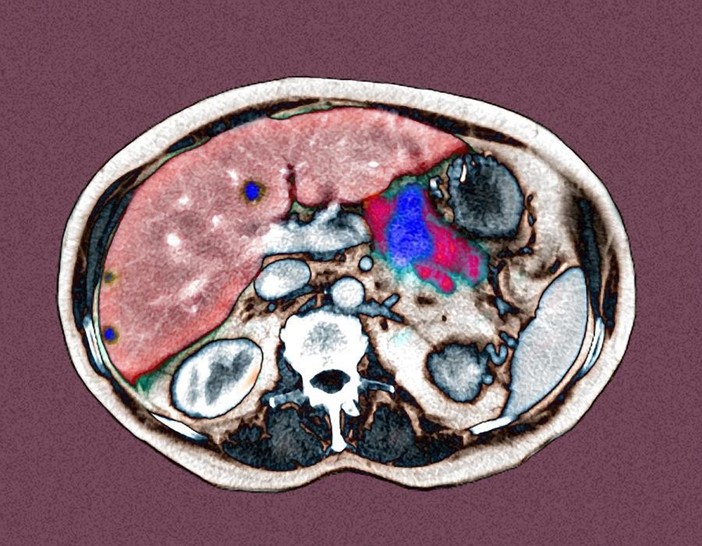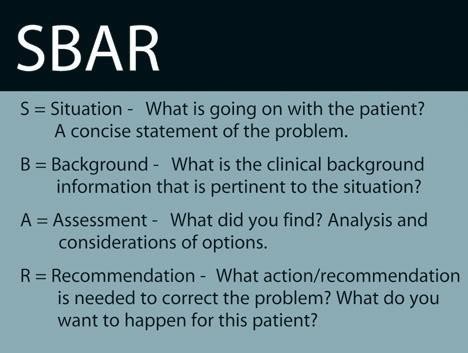An adult woman with metastatic pancreatic cancer has requested that no heroic measures are implemented to save her life. Instructions from the healthcare provider have been received to transfer the client to a palliative care room. Which action is most important for the nurse to take first?
Ensure transfer of the client's electronic chart code.
Give a detailed report to the accepting nurse.
Take the family to the client's new room.
Give the client written information about end-of-life care.
The Correct Answer is B
Choice A Reason: Ensuring the transfer of the client's electronic chart code is not the most important action for the nurse to take first. The electronic chart code is a unique identifier that allows access to the client's health records and care plan. While this is an important task, it is not as urgent or essential as giving a detailed report to the accepting nurse, who will be responsible for providing palliative care to the client.
Choice B Reason: Giving a detailed report to the accepting nurse is the most important action for the nurse to take first. The report should include the client's diagnosis, prognosis, pain level, medication regimen, preferences, goals, and psychosocial needs. This will ensure continuity of care and facilitate a smooth transition for the client and the family.
Choice C Reason: Taking the family to the client's new room is not the most important action for the nurse to take first. The family may need emotional support and guidance during this difficult time, but they also need accurate and timely information about the client's condition and care plan. The nurse should first give a detailed report to the accepting nurse and then accompany the family to the new room.
Choice D Reason: Giving the client written information about end-of-life care is not the most important action for the nurse to take first. The client may benefit from learning more about palliative care, hospice care, advance directives, and bereavement services, but this should be done after giving a detailed report to the accepting nurse and ensuring that the client is comfortable and stable in the new room.

Nursing Test Bank
Naxlex Comprehensive Predictor Exams
Related Questions
Correct Answer is A
Explanation
Choice A Reason: This is the best action because it describes the current situation of the client and alerts the family to a possible change in the client's status. The nurse should provide the most relevant and urgent information first using the SBAR communication.
Choice B Reason: This is not the first action because it does not address the current situation of the client. The nurse should verify the client's healthcare power of attorney, but this is not a priority at this time.
Choice C Reason: This is not the first action because it does not explain the cause of the client's confusion. The nurse should review the client's medications and assess for any adverse effects, but this is not a priority at this time.
Choice D Reason: This is not the first action because it provides background information that is not directly related to the current situation of the client. The nurse should give a brief history of the client's admission, but this can be done later.

Correct Answer is B
Explanation
Choice A Reason: Beginning initial sterile wound care for surgical clients is a nursing intervention that requires clinical judgment and cannot be delegated to the PN. The PN may assist with wound care after the initial dressing change, but the RN is responsible for assessing the wound and initiating the plan of care.
Choice B Reason: Validating prescribed intravenous flow rates is a routine task that does not require clinical judgment and can be delegated to the PN. The PN has the knowledge and skill to check the IV orders, calculate the drip rate, and monitor the infusion.
Choice C Reason: Determining the need for urinary catheterizations is a nursing assessment that requires clinical judgment and cannot be delegated to the PN. The PN may perform urinary catheterizations as ordered by the physician, but the RN is responsible for evaluating the indication, risk, and benefit of the procedure.
Choice D Reason: Receiving a postoperative client and conducting the assessment is a nursing intervention that requires clinical judgment and cannot be delegated to the PN. The RN is responsible for receiving reports from the operating room, assessing the client's status, identifying potential complications, and initiating the plan of care.
Whether you are a student looking to ace your exams or a practicing nurse seeking to enhance your expertise , our nursing education contents will empower you with the confidence and competence to make a difference in the lives of patients and become a respected leader in the healthcare field.
Visit Naxlex, invest in your future and unlock endless possibilities with our unparalleled nursing education contents today
Report Wrong Answer on the Current Question
Do you disagree with the answer? If yes, what is your expected answer? Explain.
Kindly be descriptive with the issue you are facing.
